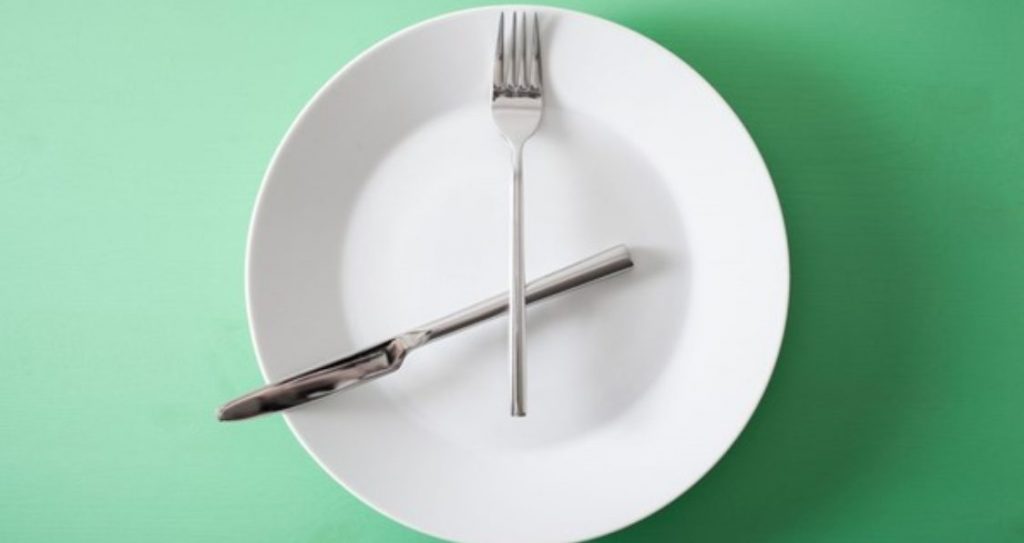Intermittent fasting is a solution to losing weight effortless
The notion of losing weight does not have to be the impossible task that it is made out to be. There are plenty of diets that you can follow as well fat burning supplements that can be used to do the job, but intermittent fasting is a way that makes it a lot simpler! Now, dropping weight is definitely not an overnight process (though we wish it was), but it can be sped up and made more effective. A lot of people struggle to lose weight because they’re approaching it from a lifestyle that’s not enjoyable, so they give up and gain back any weight that they lost.
When you’re trying to lose weight, you’ll want to pick a plan that is the most sustainable and enjoyable for you long-term.
In this post, we detail how you can eat your favorite foods and lose weight by learning the ins and outs of intermittent fasting.
What is Intermittent Fasting?
Intermittent fasting is going a prolonged period without eating. You can do this in numerous ways (more on that later). But basically, you’ll eat your last meal and won’t eat again until it is time for your “eating window.” Your eating window is the timeframe you allow yourself to eat. If you’re not in your eating window, you’re not eating, aka fasting.
The reason this is such an effective diet for many people is that it allows you to eat larger portions. This makes your meals much more enjoyable and makes getting full a lot easier, which is vital for sustainable weight loss.
It’s still important to hit your macros and especially get a proper protein intake while intermittent fasting, but you can get away with eating more of your favorite foods when you do fast. That’s because you’ll end up consuming fewer calories, warding off fat.
Yes, that means more pizza!
Why Intermittent Fasting Helps with Weight Loss
Intermittent fasting helps with weight loss because it allows you to eat fewer calories each day. Now, I must mention that even though intermittent fasting makes eating less easier, it’s no magic pill and doesn’t mean you can go on an all-out eating spree with no consequences.
If you fast but still overeat, you’ll gain weight.
Weight Loss Formula
To lose weight, you need to burn more calories than you consume, and fasting can make eating fewer calories much easier than eating multiple meals throughout the day.
Let’s say for example on an intermittent fasting day you only eat two meals and consume 3,000 calories, but say on another day you eat five meals spread throughout the day and only consume 2,000 calories. You’ll lose more weight from the latter — even though you were practicing intermittent fasting on the other day, you still ate more calories that day, therefore, you’ll lose less weight. However, many practitioners of intermittent fasting will agree that consuming fewer calories via fasting is a lot easier than consuming fewer calories off multiple meals (1).
Different Types of Intermittent Fasting
There are a few different methods of fasting. The simplest and easiest method to follow is to eat your last meal at dinner and skip breakfast the next day. However, if you want a little more structure, there are a couple of different strategies you can employ.
16:8
At its basic level, there’s the 16:8 method. With this strategy, you’ll fast for 16 hours and allow yourself an 8-hour eating window. And if 16 hours sounds like a long time to fast, no worries, sleep is part of your fasting window.
Whether you’re a morning eater or nighttime eater, it won’t matter. The number of calories you eat and how long you fast will be what matters. So for example, if you love breakfast, instead of skipping breakfast, you’ll skip dinner.
5:2
With this method, you’ll eat regularly for 5 days and restrict your calories to very low for 2 days, while fasting. You’ll want to consume around 600 calories on your fasting days.
Eat Stop Eat
You’ll fast for 24 hours 1-2 days a week on this protocol, and the other days you’ll eat regularly.
Alternate Day Fasting
As the name suggests, you’ll fast every other day. You can either do a 24 hour fast or shorten your fast more similar to the 16:8 method mentioned above.
The Warrior Diet
The warrior diet is what I like to have in my arsenal for feast nights. You eat minimally throughout the day, if anything at all, then consume a huge meal at nighttime.
One of my favorite things to do for a cheat meal is to fast an entire day — for about 24 hours, then go ham on my favorite foods. The beauty of this is that even though I just ate a bunch of junk, the amount of calories I consumed isn’t too much since the only calories I ate that day was my one cheat meal.
Now, you must make sure you don’t overeat if you follow this approach and still want to hit your goal weight. As aforementioned, if you consume too many calories doing this, it won’t work.
It’s a great strategy to implement if you know you’ll be eating a heavy meal one night out.
Intermittent Fasting Benefits
Aside from making weight loss a breeze, intermittent fasting has a plethora of benefits.
Benefits
- Increased levels of human growth hormone otherwise known as HGH (2)
- Reduce insulin sensitivity (lowers your risk of type 2 diabetes) (3)
- Reduce oxidative stress and inflammation in your body (4)
- Healthy for your heart (5)
- May prevent cancer (6)
- Good for your brain (7)
- Prevent Alzheimer’s disease (8)
- Extends your lifespan (9)
As you can see, the benefits of IF are plentiful! From weight loss to brain health to increasing your lifespan, intermittent fasting is packed with benefits.
Intermittent Fasting Tips
Although fasting can seem like a weight-loss hack, it comes with its challenges, especially for beginners new to it. Fasting takes some time to get used to and I recommend you give your body a couple of weeks to adjust to it. At first, it will be a lot tougher.
You can make fasting a lot easier by following the tips I’ve laid out below.
Tips
- Drink black coffee
- Consume sparkling water
- Drink no calorie tea
- Eat a small protein snack and fruit
Caffeine blunts your appetite, so consuming some black coffee during your fast will waive off your raging appetite. Any low-calorie or no-calorie drinks are fine during your fast and will make fasting easier, plus drinking plenty of water will keep you hydrated. Sparkling water is great because not only is it water, but since it’s carbonated water, it can help you feel full. However, the wrong fat burner is loaded with stimulants such as caffeine, substandard ingredients, and flat out lies. Beware of anything that guarantees completely unrealistic results.
Once the hunger becomes unbearable, and you’re still not done with your fast, eating a light snack packed with protein and micronutrients — a protein shake and some fruit — will pick you back up.
The Best Fat Burner to Use While Intermittent Fasting
Burn Lab Pro is a great all-around fat burner with an innovative design and research-backed benefits. It is 100% natural, safe, and caffeine free giving you the best option on the market.
Burn Lab Pro is an all-around great fat burner on the market with an innovative design and research-backed benefits to really enhance your results as you seek to burn belly fat; perfect to pair with intermittent fasting.
Instead of an unhealthy, stim-driven formula, Burn Lab Pro is 100% natural, safe, and caffeine free to give you an effective supplement without any fear of jitters or crashing. Burn Lab Pro allows you to shed more body fat from every workout, gain more lean muscle, see better results from diet and exercise, and give you a safe and natural fat burner supplement to tackle any issues, like muscle maintenance and a lack of an energy boost.
With 5 powerful and research-backed ingredients, this advanced formula is designed to target all of your weight loss needs from one of the best fat burners.
Conclusion
There’s no magic pill for weight loss, but intermittent fasting is pretty close to one with the right and clean fat burner. Intermittent fasting makes losing weight easier and gives you plentiful benefits, including increased HGH, better brain health, and an increased lifespan.
If you’re struggling to lose weight, try out intermittent fasting and follow the tips above.
What’s your favorite diet? Let us know and follow Generation Iron on Instagram, Facebook, and Twitter.
References
1 – Rynders, C. A., Thomas, E. A., Zaman, A., Pan, Z., Catenacci, V. A., & Melanson, E. L. (2019). Effectiveness of Intermittent Fasting and Time-Restricted Feeding Compared to Continuous Energy Restriction for Weight Loss. Nutrients, 11(10), 2442. https://doi.org/10.3390/nu11102442
2 – Ho, K. Y., Veldhuis, J. D., Johnson, M. L., Furlanetto, R., Evans, W. S., Alberti, K. G., & Thorner, M. O. (1988). Fasting enhances growth hormone secretion and amplifies the complex rhythms of growth hormone secretion in man. The Journal of clinical investigation, 81(4), 968–975. https://doi.org/10.1172/JCI113450
3 – Adrienne R. Barnosky, Kristin K. Hoddy, Terry G. Unterman, Krista A. Varady Intermittent fasting vs daily calorie restriction for type 2 diabetes prevention: a review of human findings, Translational Research, Volume 164, Issue 4, 2014, Pages 302-311, ISSN 1931-5244, https://doi.org/10.1016/j.trsl.2014.05.013.
4 – Johnson, J. B., Summer, W., Cutler, R. G., Martin, B., Hyun, D. H., Dixit, V. D., Pearson, M., Nassar, M., Telljohann, R., Maudsley, S., Carlson, O., John, S., Laub, D. R., & Mattson, M. P. (2007). Alternate day calorie restriction improves clinical findings and reduces markers of oxidative stress and inflammation in overweight adults with moderate asthma. Free radical biology & medicine, 42(5), 665–674. https://doi.org/10.1016/j.freeradbiomed.2006.12.005
References Cont’d
5 – Varady, K. A., Bhutani, S., Church, E. C., & Klempel, M. C. (2009). Short-term modified alternate-day fasting: a novel dietary strategy for weight loss and cardioprotection in obese adults. The American journal of clinical nutrition, 90(5), 1138–1143. https://doi.org/10.3945/ajcn.2009.28380
6 – Lee, C., Raffaghello, L., Brandhorst, S., Safdie, F. M., Bianchi, G., Martin-Montalvo, A., Pistoia, V., Wei, M., Hwang, S., Merlino, A., Emionite, L., de Cabo, R., & Longo, V. D. (2012). Fasting cycles retard growth of tumors and sensitize a range of cancer cell types to chemotherapy. Science translational medicine, 4(124), 124ra27. https://doi.org/10.1126/scitranslmed.3003293
7 – Lee, J., Duan, W., Long, J. M., Ingram, D. K., & Mattson, M. P. (2000). Dietary restriction increases the number of newly generated neural cells, and induces BDNF expression, in the dentate gyrus of rats. Journal of molecular neuroscience : MN, 15(2), 99–108. https://doi.org/10.1385/JMN:15:2:99
8 – Halagappa, V. K., Guo, Z., Pearson, M., Matsuoka, Y., Cutler, R. G., Laferla, F. M., & Mattson, M. P. (2007). Intermittent fasting and caloric restriction ameliorate age-related behavioral deficits in the triple-transgenic mouse model of Alzheimer’s disease. Neurobiology of disease, 26(1), 212–220. https://doi.org/10.1016/j.nbd.2006.12.019
9 – Charles L. Goodrick, PhD, Donald K. Ingram, PhD, Mark A. Reynolds, MA, John R. Freeman, BS, Nancy L. Cider, BS, Differential Effects of Intermittent Feeding and Voluntary Exercise on Body Weight and Lifespan in Adult Rats, Journal of Gerontology, Volume 38, Issue 1, January 1983, Pages 36–45, https://doi.org/10.1093/geronj/38.1.36












